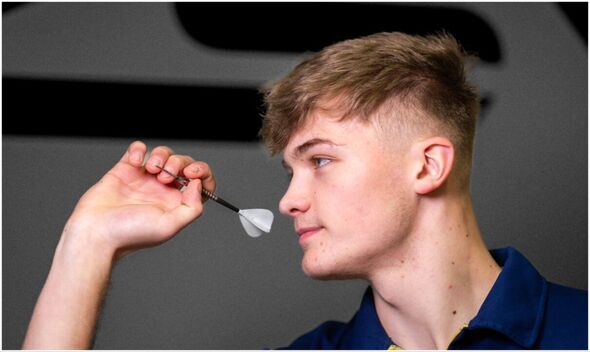Europe between War and Peace 1914-2004
April 20, 2014
Hedge Funds Cut Gold Bets in Longest Slide of 2014: Commodities
April 21, 2014
Scotland’s life expectancy levels would move closer to the best-performing countries in Europe if the population became more active, according to a leading doctor.
Dr Andrew Murray, who works closely with the Scottish Government as a physical activity ambassador, said people who were inactive could increase their own life expectancy by more than seven years if they started taking regular exercise.
The Edinburgh-based GP said Scotland could see average life spans jump from their current low levels to nearer those of countries where people consistently live up to five years longer.
His comments came ahead of today’s start of Scotland’s first Physical Activity Awareness Week, which aims to reduce inactivity and build on the legacy of events such as the Commonwealth Games in Glasgow to inspire people to take more exercise.
With physical inactivity estimated to kill 2,500 Scots a year and cost the NHS £91 million annually, Dr Murray said now was the ideal time to educate people about the importance of being active.
He said: “2014 is a unique opportunity in Scotland, given that we have got the Commonwealth Games and these medal-winning athletes coming to Scotland, also the Ryder Cup.
“Although Scotland can’t have everyone in the population winning a gold medal, we can get the same benefits as the athletes do.
“It is a little-known fact that just by getting active 30 minutes five times a week or doing 30 minutes of walking five times a week, you actually live on average 7.2 years longer.
“It can actually increase national happiness. Those who are active are actually a lot happier and healthier.”
New figures have revealed that Scottish regions continue to come bottom in the UK for average life expectancy levels, with a quarter of boys born in Glasgow not expected to make their 65th birthday.
Across Scotland, the Office for National Statistics figures for 2010-12 combined showed the average life expectancy for boys and girls at birth was 76.6 and 80.8 years, compared to the UK averages of 78.9 and 82.7 years.
But other figures show Scotland also lags behind other countries in Europe. In 2012, average life expectancy for women in Spain was 85.5 and in France 85.4, compared to 80.9 in Scotland
Both Iceland and Switzerland saw life expectancy in men exceed 80, while Spain, Italy, the Netherlands, Sweden and Norway all had average life spans above 79. In Scotland in 2012 it stood at 76.9. Dr Murray said: “The root causes of health problems in Scotland are not due to a lack of good doctors, nurses or medications.
“A lot of the difference in life expectancy between ourselves and other European neighbours is due to various lifestyle factors.
“It is well documented that Scots drink more than the European average. Perhaps our diet is less healthy and we are certainly much less active as a nation than the European average.
“If we turn these things around we will have the same life expectancy as the rest of Europe. We can achieve that as a nation. We can get better that way.”
Dr Murray said some people may assume that nothing could be done to tackle Scotland’s health problems, which were long-ingrained.
“People say it can’t be done, that it’s part of our genetics and what we are as Scots, but that’s just not the case,” he said.
“If you look at the culture change that has been achieved in smoking, drink-driving and use of seat belts, it can be done.”
Case study: Call for protective measures as skin cancer rates quadruple in 40 years
Rates of deadly skin cancer in Scotland have more than quadrupled in the past 40 years, new figures reveal.
The dramatic increase in cases of malignant melanoma – the deadliest form of the disease – means more than 1,200 people a year are now diagnosed with the cancer.
The rise since the 1970s has been linked to the advent of package holidays to Europe and the increasing fashion for having a tan.
Campaigners called for people to take action to protect themselves in the sun as summer approaches and holidaymakers head abroad.
Figures revealed by Cancer Research UK showed that in Scotland around 18.2 people per 100,000 of the population are now diagnosed with malignant melanoma annually – up from just 4.1 cases per 100,000 in the mid-1970s. In men, the rate increased from 3.1 per 100,000 in 1975-77 to 17.9 per 100,000 in 2009-11. In women, the rate increased from 5 per 100,000 to 18.9 per 100,000 over the same period.
Although 1,200 people are diagnosed with the disease each year, only 190 people were struck by the deadly cancer annually in 1975-77.
Cancer Research UK and sun care company Nivea Sun have launched a new campaign to encourage people to enjoy the sun safely this summer.
Mother-of-three Caroline Begg is especially keen to spread that message after being struck by skin cancer at the age of 26.
Having a 13-week-old son Nicholas, she knows she is lucky to be alive after being diagnosed with malignant melanoma at such a young age. She now makes sure her whole family take special care to protect their skin.
Mrs Begg, 34, had surgery in May 2006 to remove a mole and stop the cancer from spreading. She said: “I was one of the lucky ones because my skin cancer was picked up early.”



